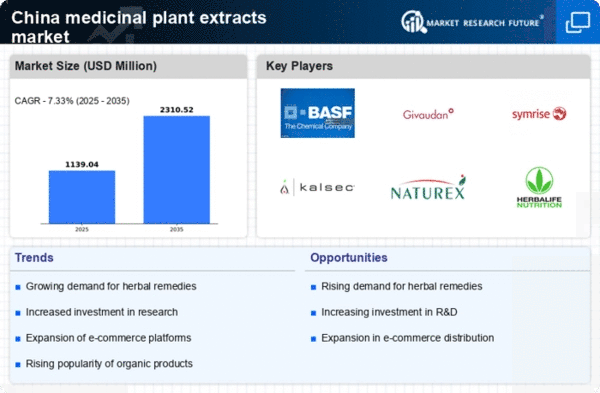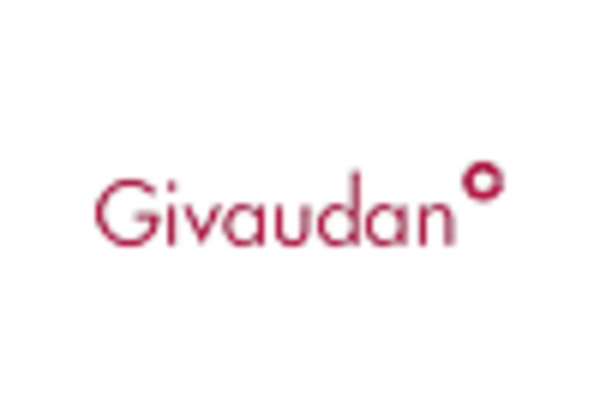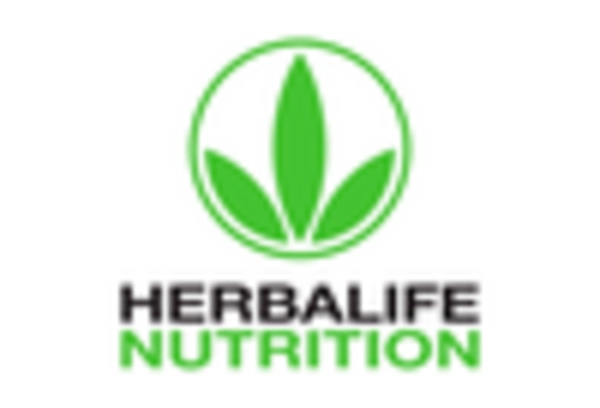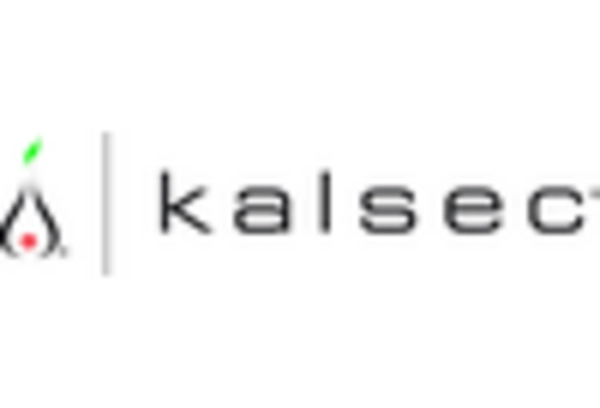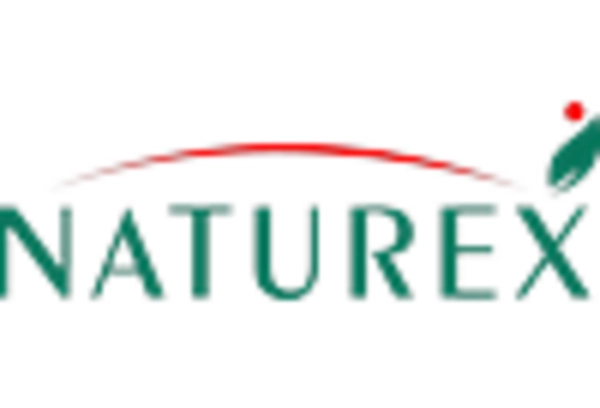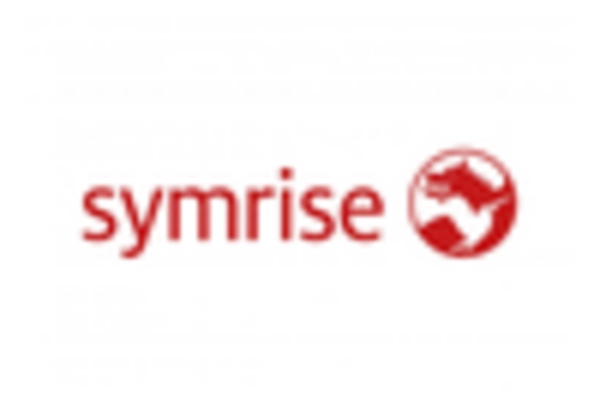Growing Health Consciousness
The increasing awareness of health and wellness among consumers in China appears to be a significant driver for the medicinal plant-extracts market. As individuals become more health-conscious, there is a notable shift towards natural and organic products. This trend is reflected in the rising demand for herbal supplements and remedies, which are perceived as safer alternatives to synthetic pharmaceuticals. In 2025, the market for herbal medicines in China is projected to reach approximately $30 billion, indicating a robust growth trajectory. This heightened interest in natural health solutions is likely to propel the medicinal plant-extracts market further, as consumers seek products that align with their health values.
Expansion of E-commerce Platforms
The rapid growth of e-commerce in China is transforming the way consumers access medicinal plant extracts. Online platforms provide a convenient avenue for purchasing herbal products, thereby expanding market reach. This shift is particularly relevant in urban areas, where busy lifestyles drive the demand for online shopping. In 2025, e-commerce sales of herbal products are expected to account for over 25% of total sales in the medicinal plant-extracts market. The accessibility and variety offered by e-commerce platforms are likely to attract a broader consumer base, further stimulating market growth.
Cultural Heritage and Traditional Medicine
China's rich history of traditional medicine, particularly Traditional Chinese Medicine (TCM), plays a crucial role in shaping the medicinal plant-extracts market. The cultural significance of herbal remedies and their integration into daily health practices contribute to sustained demand. TCM has been practiced for thousands of years, and its principles continue to influence modern health trends. The medicinal plant-extracts market benefits from this cultural heritage, as consumers increasingly turn to TCM for preventive care and treatment. In 2025, the market for TCM is expected to grow by approximately 10%, further solidifying the importance of traditional practices in the contemporary health landscape.
Rising Investment in Research and Development
Investment in research and development (R&D) within the medicinal plant-extracts market is gaining momentum in China. Companies are increasingly focusing on scientific validation of herbal products, which enhances their credibility and marketability. This trend is likely to lead to the development of innovative extraction techniques and formulations that improve efficacy and safety. In 2025, R&D spending in the herbal medicine sector is projected to increase by 15%, reflecting a commitment to advancing the medicinal plant-extracts market. Such investments not only foster innovation but also address consumer demands for high-quality, effective products.
Increasing Regulatory Support for Herbal Products
The regulatory landscape for herbal products in China is evolving, with increasing support from government bodies. This regulatory framework aims to ensure the safety and efficacy of medicinal plant extracts, thereby enhancing consumer trust. Recent initiatives have focused on standardizing quality control measures and promoting research into herbal medicines. As a result, the medicinal plant-extracts market is likely to benefit from improved product credibility and market acceptance. By 2025, it is anticipated that regulatory advancements will contribute to a 20% increase in the market size, as consumers feel more confident in the safety of herbal products.


